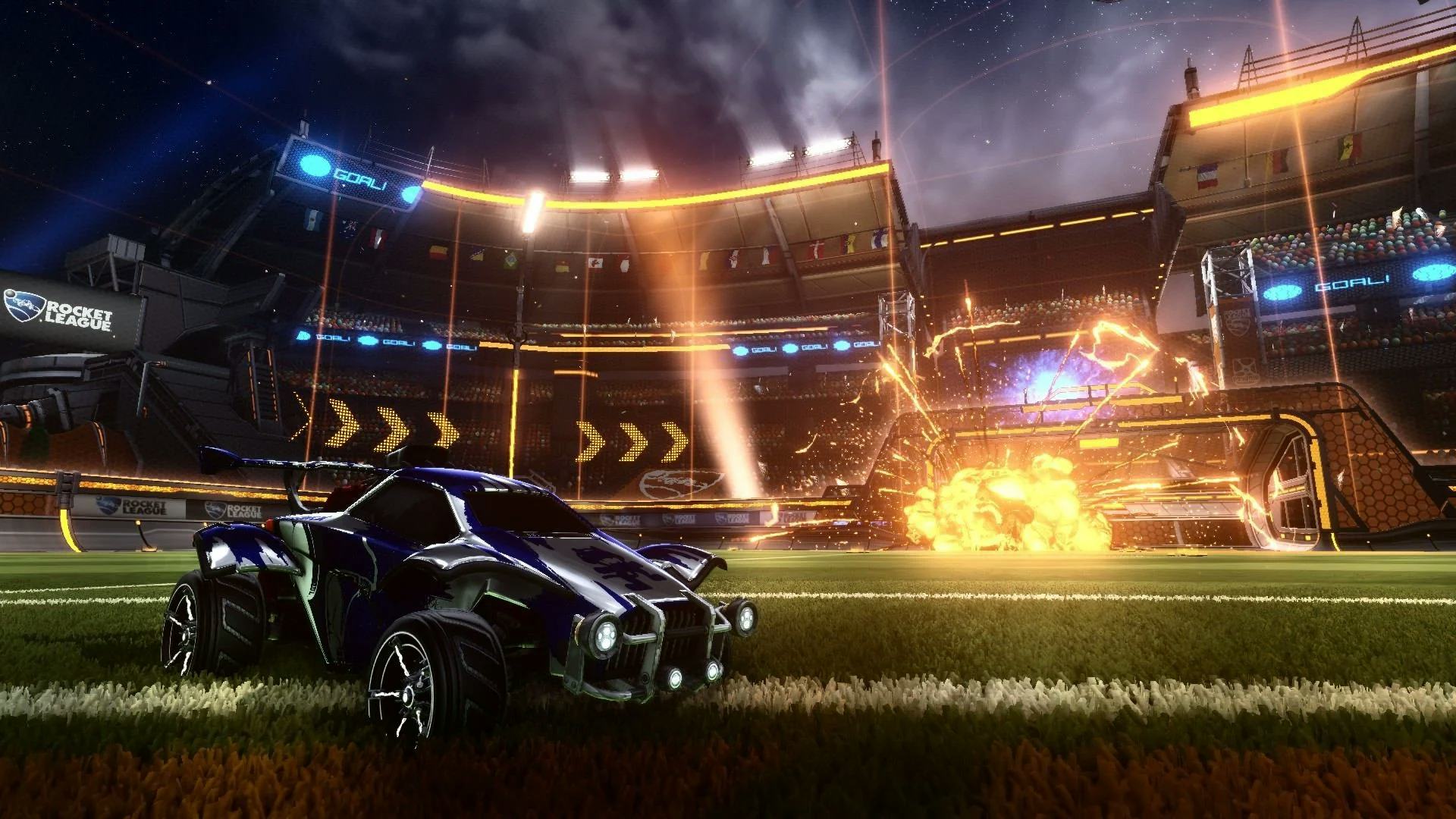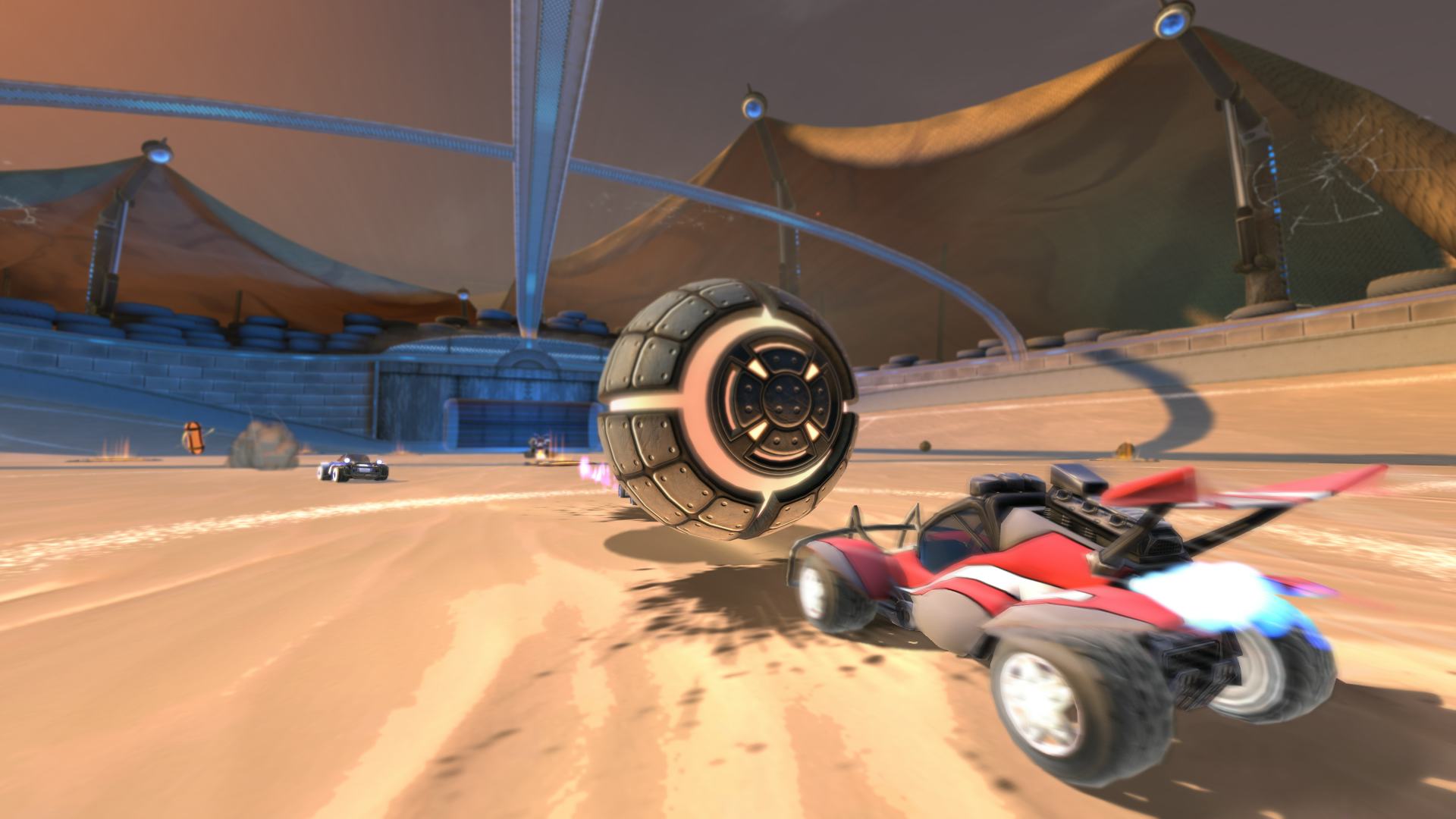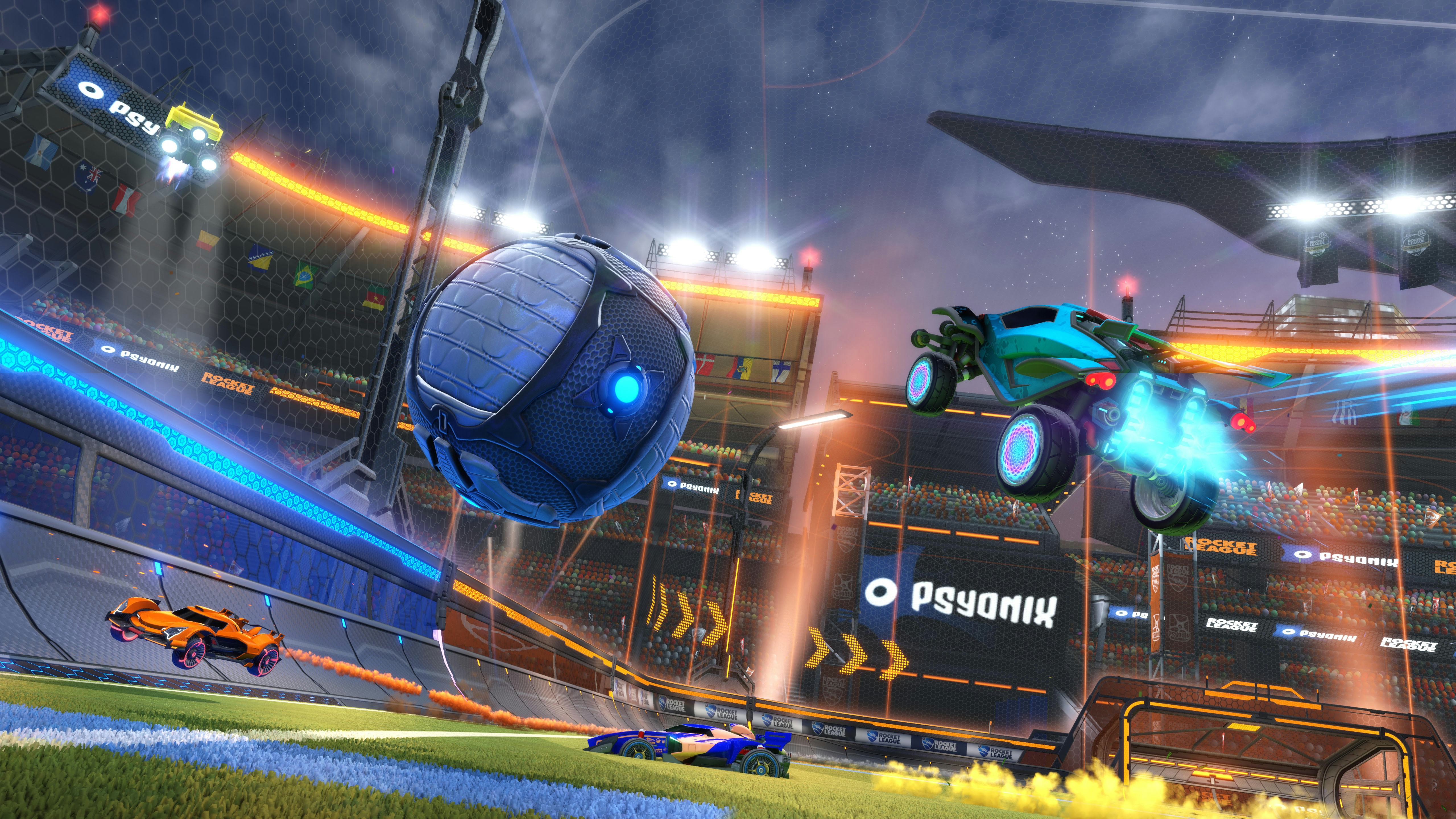
Sometimes a new idea is so simple, yet so earth-shattering, that it’s hard to believe no one’s thought of it before. That’s what developer Psyonix had on their hands in 2008 with Supersonic Acrobatic Rocket-Powered Battle-Cars, a cult PlayStation 3 hit. Despite its fantastic premise of four-on-four soccer with Hot Wheels instead of humans, this weird fusion of racing and sports game came and went without much fanfare.
Psyonix got by doing contract work for projects like XCOM: Enemy Unknown and Mass Effect 3, but it never let go of that original idea. In 2013, development started on a sequel that refined the camera, sense of momentum, and even the broadcast-like presentation. It also ditched the overly long name in favor of something a bit catchier: Rocket League.
As a better version of an already fun game, Rocket League was exactly what it needed to be. It was sure to succeed once it was in players' hands. But how could Psyonix guarantee that players would see it, try it, and this time around, never forget about it? The answer was a Hail Mary that would change the trajectory of the entire gaming industry.

Rocket League launched on July 7, 2015, and was immediately free for PlayStation Plus subscribers. While PlayStation Plus has provided two free games a month since its June 2010 debut, this was one of the first times a game had launched on it. For players, it seemed too good to be true. Unlimited access to a brand new game? Years before the PlayStation Library, Switch Online, and Game Pass, this was a non-existent practice. And according to Psyonix, the decision was mandatory.
“We didn’t have any money to spend,” Psyonix vice president Jeremy Dunham said in a 2016 documentary about the game’s production. “Our budget for marketing and PR was practically nothing. Our big challenge was ‘how do we get it out to other people?’”
While turning to PlayStation Plus lifted that financial burden, design director Corey Davis said it was an excruciating choice that created a new concern.
“We had a lot of fear that we would just make no money on the game,” he said. “You fight for an amount [Sony] pays you. And then you hope that that’s enough if nothing else happens. It was really concerning that we might just sign away a lot of this money, and then the game drops off within the first month. What if five million people download it, no one buys it ever again, we’ve made nothing, and we have to pay for servers for five million people?”
Luckily for Psyonix, Rocket League was a smash hit among PlayStation Plus users, and with PlayStation leading the console market, word got around quickly. Rocket League was in regular rotation on my friends list almost immediately, with everyone excited to uncover its nuances. And because the game offered DLC and seasonal content (an idea adopted from popular games like Team Fortress 2 and League of Legends), everyone wanted to stick around for the long haul.
The positive buzz did wonders for the game’s sales. PC players, seeing just how much fun their PlayStation counterparts were having, were happy to part with $20 to join in. The addition of crossplay (also before that was industry standard) allowed the community to thrive, with Psyonix noting that the success they found on Steam was a lifeline that paid for the game’s early server expenses.
Rocket League’s success snowballed. There were Switch and Xbox launches. In 2019, Psyonix was purchased by Epic Games. And in 2020, Rocket League would go free-to-play. Later, it would be integrated into the metaverse of the world’s biggest game, Fortnite, with an excellent racing spin-off called Rocket Racing.

Rocket League is a colossal gaming mainstay. It’s huge on the eSports scene, it still regularly drops new content to millions of players, and it pioneered a smart launch strategy that’s become commonplace among indie developers. Games like Rematch, which reverts Rocket League’s outlandish premise back to its athletic roots, recently launched onto Xbox Game Pass to great success, and it’s far from alone.
Launching a game that stands out amid every other title out there is a tremendous challenge, but Rocket League proved that, if your creation is good enough, a community will sing its praises. It was a massive, virtually unheard-of risk 10 years ago. But it paid off, and gave gaming one of its most enduring masterpieces.







